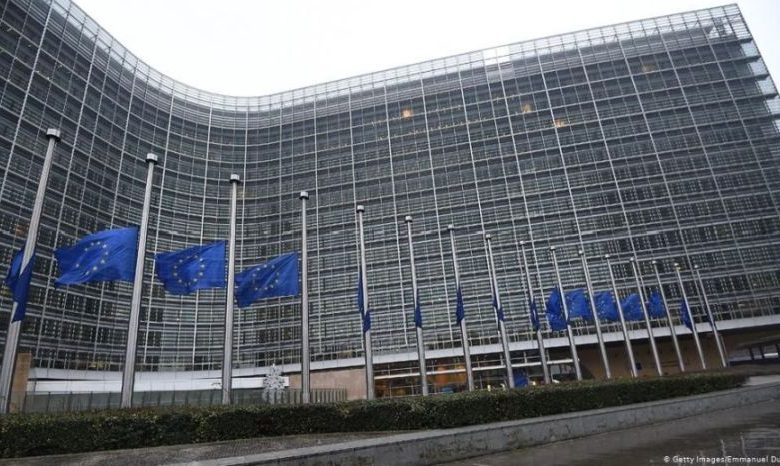EU seeks way out of constitutional impasse
The fate of the Lisbon Treaty will try to decide in October
The countries of the European Union are determined to complete the ratification of the Lisbon Treaty, even though the population of Ireland rejected it. However, the decision on the fate of the agreement will not be made at the current summit of the heads of the 27 EU member states in Brussels, but in October. The meeting participants believe that more time is needed to analyze the situation after the referendum in Ireland, and agreed to return to this issue during the October summit.
“We worked for a long time, honestly, it was not easy, but not impossible. Our main goal is the Lisbon Treaty, which will allow better functioning of the 27 EU member states and will allow better work outside these 27 countries when the expansion process continues, ”said EU High Commissioner for Foreign Policy Javier Solana.
The Czech Republic said it would not support a possible resolution to continue the process of ratification of the Lisbon Treaty, if such a document was proposed for consideration.
“I’m not going to force anyone to vote against or for, but the truth is that if the ratification took place today, I wouldn’t bet 100 kroons for the Czech Republic to say yes,” said the Czech Prime Minister Minister Mirek Topolanek.
In addition to the Czech Republic, the Lisbon Treaty has not yet been ratified by Poland. Observers believe that until the next October EU summit, the crisis will not be resolved.
EU Member States Continue Ratification of Lisbon Treaty Despite Failure in Ireland
In June 19, a European Union summit began in Brussels, which discusses the fate of the Lisbon Treaty, which aims to replace the draft European Constitution after its failure in referenda in France and the Netherlands in 2005.
After the residents of Ireland rejected the document in a referendum last week, according to the rules, ratification of the treaty by other countries should be stopped, and the agreement itself would no longer be seen as a kind of future EU constitution. However, ratification is ongoing, and experts believe it is too early to give up. On Wednesday evening, the British Parliament approved the agreement.
The Lisbon Treaty has prospects, says Radio Liberty observer Efim Fishstein:
– The current situation in the European Union is as follows. 8 EU countries have not yet ratified the Lisbon Treaty on the Reform of the Institutions of the European Union. Some of these states are currently in the process of ratification. This is, in particular, the United Kingdom, where the queen must sign the decision of Parliament. This is the situation in Poland, where the Polish Sejm also ratified the treaty, but President Lech Kaczynski has not yet signed it. The situation is similar in the Czech Republic and Germany, where the agreement is under consideration by the Constitutional Court with a view to linking it with the existing constitution of these countries.
18 states have already signed the treaty, and it has been ratified in the parliaments of these countries. And here is Ireland. What can you expect now? Some politicians have already unequivocally expressed themselves in favor of continuing the ratification process, although there is no possible solution, and it is not even expected. The tactics here are simple: to continue the ratification process in order to make any deviation from it impossible. If 26 out of 27 countries ratify this treaty, then it will be practically impossible to backtrack.
“But by the rules, all 27 must approve of it.” Even if one is against, then this agreement cannot work. How to get around this?This is the catch – this agreement was to create the legal basis, was to reconcile Europeans with legislative, constitutional positions that would show that Europe was able to comply with its own rules. And by her first act, she will be forced to circumvent the rule. How she does it is impossible to say today, but there are some options. For example, the removal of Ireland from all other countries of the European Union so that it remains isolated for some time. Then, in a year or two, either through a referendum, or perhaps through ratification in parliament, it can join the rest of the countries.
– It turns out that the Irish have to change their own constitution.
“It can be done.” The law may change in accordance with the spirit of the times. Undoubtedly, this option remains. There are a number of other options. Part of Europe is in the Schengen zone, part is in some kind of alliance, part is not. And now there are a number of groups within Europe, some are members of NATO, others are not, and so on. That is, there will be another group consisting of one single country – Ireland, which will not be part of the Lisbon Treaty. And such an option is possible. This is all, of course, tricks, it is all attempts to circumvent the rule that was adopted, but now the Europeans have nothing else left.
There are several obvious trends. Trend number one – this referendum, apparently, was the last of the referenda in which the fate of all of Europe was decided. Because Europeans with referenda have a very sad experience: as soon as a referendum is held, it fails. Or the law that appears on behalf of the government fails. The second obvious trend: the process of deep integration of Europe until its transformation into a unitary or federal state has actually ended. All the processes taking place now are processes of increasing the role and independence of national parliaments and national governments. It is clear that the European Union is in a sense behind the zenith, further economic unions are possible, deepening economic integration, but not deepening political integration.
This post is also available in:
 English
English  Русский (Russian)
Русский (Russian)






